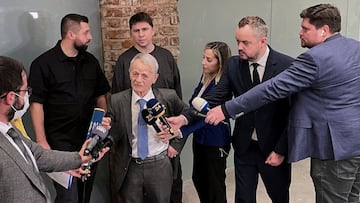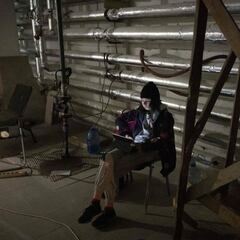What happened at the meeting of Russia and Ukraine in Turkey? Is a ceasefire possible?
The first face-to-face meeting in Istanbul has been hailed as the beginning of the peace process in Ukraine but both sides remain far apart on many issues.


March 29 saw the 'city of the world's desire', Istanbul, play host to the most important peace negotiations so far in the Ukrainian war. Turkish President Recep Tayyip Erdogan is acting as media as high-level talks between the two parties hope to thrash out an agreement.
Some progress has been made so far, but sticking points remain on a number of key issues. One of the latest developments has been the Russian demand for the besieged city of Mariupol to surrender. Under assault for a month, the key city in the Donetsk region is a major Russian target, especially after the supposed abandonment of objective Kyiv.
Russia has been obstinate that the situation in Crimea, occupied by Russia since 2014, and the eastern breakaway provinces of Donetsk and Luhansk is a formality. But Ukrainian negotiators remain tight-lipped on what concessions they will make, if any, at this stage.
Lavrov says Ukraine and Russia have made “significant progress” and “positive movement” in peace talks.
— max seddon (@maxseddon) March 30, 2022
He says Ukraine has “recognized the need” to give up on NATO – but also that Kyiv understands “the issues of Crimea and Donbas are settled for good.”pic.twitter.com/miIek1CiZb
Has anything been agreed in Istanbul?
Ukraine has proposed that they will be a neutral state and not join NATO, though negotiations continue on whether Ukraine could be allowed to join the EU. At the same time, Russia claims it has been moving troops away from the Russian capital of Kyiv in what they described as "decreased activity."
However, 'activity' has continued in the form of rocket and missile attacks. Chernihiv region's governor, Vyacheslav Chaus, said about the supposed pull back of Russian troops, "Do we believe in it? Of course not."
"The 'decreased activity' in the Chernihiv region was demonstrated by the enemy carrying out strikes on Nizhyn, including airstrikes, and all night long they hit Chernihiv," he added.
The US and NATO have also cautioned against believing Russia's word.
"Less than 20 percent" of Russian forces near Kyiv are starting to "reposition", said Pentagon spokesman John Kirby on Wednesday afternoon. So far, no general ceasefire has been negotiated.
Related stories:
- Which Russian companies has Anonymous attacked and what data has it leaked?
- What part of Ukraine is controlled by Russia?
- Have Abramovich and Ukrainian peace negotiators been poisoned?
- Does Russia have any elite snipers like Wali in Ukraine?
What have both sides said about the negotiations?
Russian Deputy Deputy Defence Minister Alexander Fomin told Russian TV that there had been progress on Russia's negotiation aims and the redeployment of troops was to "create the necessary conditions for further negotiations and for the signing of the aforementioned agreement".
Ukrainian President Volodymyr Zelenskyy has said that while signs from peace talks were "positive", they do not "drown out" the explosions of Russian shells in the continued Russian attack. In a late-night address, the president said that his country can only trust the final results of any negotiations.
⚡️Russia sees no breakthrough in Ukraine's peace proposals.
— The Kyiv Independent (@KyivIndependent) March 30, 2022
According to Reuters, Kremlin spokesman Dmitry Peskov said that Russia hadn’t noticed anything “really promising” in the proposals Ukraine presented at peace talks on March 29.
Why in Turkey?
Related stories
Though Turkey is a member of NATO, it has so-far refused to sanction Russia while also supporting Ukraine with weapons shipments. This has given the nation the leeway to act as mediator between the two.
“Turkey is very vested in being able to broker peace because it would be one of the big winners if peace is able to be established between these two players", Yusuf Erim, editor-at-large at Turkey’s English-language state broadcaster TRT World, told Al Jazeera.

